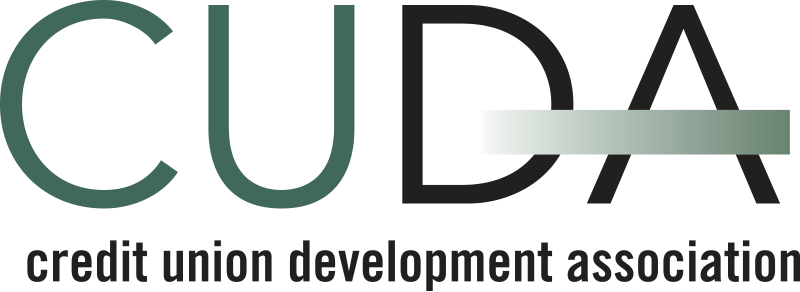Credit Unions support local businesses impacted by the economic consequences of the conflict in Ukraine by partnering with the Department of Enterprise, Trade and Employment (DETE) on the Ukraine Credit Guarantee Scheme

The Credit Union Development Association [CUDA], launched its Small Business Lending solution for credit unions to offer business loans to SMEs, ‘BizFin, Smart business finance, made simple’ in early 2021.
CUDA announced today that two of its large credit unions, Capital Credit Union and Credit Union Plus, with a combined membership of over 100,000, are now successfully partnering with Government in the low-cost Ukraine Credit Guarantee Scheme through BizFin. CUDA believes that credit unions will succeed in working with micro, small & medium sized businesses, adversely impacted by the conflict in Ukraine who are facing supply chain disruptions and increased input (including energy) costs.
Credit unions believe that SMEs have faced challenging trading conditions for over 3 years, which may have led to a sustained lack of investment, while necessary at the time, could have a detrimental impact on competitiveness. The expectation is that as the economy gets back on its feet, lending should also grow. Economic forecasts for the Irish economy remain positive [1]and lending will be required as part of SME’s capital investment strategy to fund expected growth.
The clear benefit for Credit Unions on partnering on a Credit Guarantee Scheme, is they are in receipt of an 80% Guarantee from the SBCI /or the Department of Enterprise, Trade and Employment, enabling them to offer competitively priced loans to their business members.
CUDA acknowledge that credit unions, who were again voted most trusted organisation in 2023 are more involved in their local communities, a consequence of which is more local businesspeople will be willing to sit down and discuss the merit of them participating in this scheme.
Kevin Johnson, CEO of CUDA commented, “
“As the trusted provider of financial services in communities throughout Ireland, we believe that many sole-traders and small business owners will feel more comfortable dealing with credit unions, particularly where they can receive a fast answer to their credit application. Many of these solid businesses are struggling due to high increase in costs, particularly energy costs and are now at a point where they need to review their working capital to ensure they are well positioned for the future.
We have designed the standalone business website, Bizfin.ie, to support this initiative which will be accessible to all business customers of the participating credit unions. They will be able to apply for business loans as well as apply for credit union membership via this site.”
Ends
About Ukraine Credit Guarantee Scheme
The Ukraine Credit Guarantee Scheme is offered by the Department of Enterprise, Trade and Employment to provide viable SMEs, including primary producers, impacted by economic challenges arising from the conflict in Ukraine with access to low-cost finance.
The scheme supports economic activity in Ireland, facilitating the provision of working capital and medium-term investment finance to businesses adversely impacted by the conflict in Ukraine who are facing supply chain disruptions and increased input (including energy) costs.
Borrowers will contribute to the cost of the scheme by paying a risk premium on the credit advanced. This premium will be incorporated into the margin on the loan, collected by the on-lender and paid to Government of Ireland.
Loan Features
- Loans from €10,000 to a maximum of €1,000,000 / €400,000 for BizFin Credit Unions, per borrower (subject to Loan Amount Criteria, see below for further details)
- Repayment terms of between 3 months up to 6 years
- Eligible financial products: term loan facilities.
- Loan amounts less than €250,000 will be unsecured.
- Amounts greater than €250,000 may be secured; however, a personal guarantee may only be sought in circumstances where it is required to capture supporting security, or where it is an uncollateralised personal guarantee and is limited to a maximum of 20% of the initial finance agreement amount.
- Up to 90 days interest and/or capital moratoria are possible under the scheme. These remain at the discretion of the participating on-lender.
- Loans will be available up to the 31 December 2024 or until the scheme has been fully subscribed.
Eligibility Criteria
Borrowers must self-declare that:
- Their costs have increased by a minimum of 10% on their 2020 cost figures due to the impact of the conflict in Ukraine.
- Finance is being sought specifically as a result of difficulties being experienced due to the conflict in Ukraine and meet the specific criteria as set out in the Loan Purposes section.
- Finance is being sought for a new loan. Refinancing of existing loans is not
How to apply
Step 1 – Applicants must first register on the SBCI Hub and submit an online Eligibility Application Form to check if they can access the scheme. Once the online form is completed, successful applicants will be issued with an eligibility code.
Step 2 – The applicant must provide this eligibility code to the Credit Union to begin their credit application process.
Please note that the SBCI eligibility code is not a guarantee of credit approval.
About BizFin
This Business & Community Lending solution is an initiative that commenced in participating credit unions in 2021. These credit unions have a strong desire to serve other sectors of the credit union membership, namely micro, small & medium sized enterprises, and community clubs & associations.
Our strategy is to deliver prudent high quality lending growth within our catchment area, by offering secured and unsecured longer-term lending.
This is achieved by having the necessary in-house expertise & staff, coupled with the close collaboration of contributing credit unions.
In BizFin we have developed a uniform & consistent approach, so that every applicant will have the same transparent, professional & personal experience in every participating credit union.
If you would like to know more about a business or community loan, including the Ukraine Credit Guarantee Scheme, visit BizFin.ie.
[1] European Commission Economic Forecast for Ireland May 2023[/vc_column_text][/vc_column][/vc_row]



